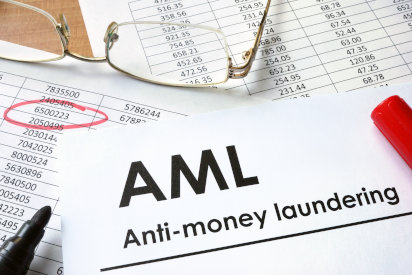Murder, assault and gang-related violence are generally perceived by the public as being “significant” or “major” crimes. However, one of the most insidious and prevalent crimes tackled by law enforcement around the world is financial fraud, in particular money laundering.
The term ‘money laundering’ is used to describe the concealing of the original source of illegally obtained funds, so that illicit activities facilitated by those funds cannot be tracked by the authorities. Of particular concern in current times is that laundered funds are often used for terrorism financing, amongst other borderless crimes such as the trade in drugs.
The international Financial Action Task Force (FATF) released a report rating how successful Australia currently is at detecting, preventing and prosecuting money laundering and other financial crimes in 2015.
Here are some of the key assessments made by the FATF in its Anti-Money Laundering and Counter-Terrorist Financing Measures – Australia report.
What are the key criticisms in the report?
Although Australia is complying with its baseline international obligations in relation to anti-money laundering protocols, there are several areas in which the report concludes Australia could be performing better.
Chiefly, these comprise:
- Despite having access to sufficient, good quality financial intelligence from AUSTRAC, Australian law enforcement fails to adequately capitalise on this information.
- Australia tends to be somewhat myopic in focusing more on financial crimes involving drugs, fraud and tax evasion and less on more general money laundering. Although what Australia does is done well, there are significant opportunities for improvement.
- Self-laundering offences (where a person tries to hide the origins of the proceeds of a crime they have committed) are rarely prosecuted by Australian authorities.
- Failing to prosecute corporations for money laundering offences. While authorities do focus on individuals, the report states that it appears the prosecution of offending companies is “not seriously considered or pursued”.
- Australia tends not to prosecute foreign nationals who have committed predicate, or related, offences to money laundering. This is the case even when the offences are closely aligned with financial crimes such as bribery or general corruption.
- Matters are often being pursued via the criminal justice system without ensuring the probability of a successful prosecution (and thereby wasting valuable resources).
What is Australia getting right with its anti-money laundering regime?
The report outlines a number of highlights in Australia’s anti-money laundering regime, namely:
- The development and dissemination of strong financial intelligence through Australia’s financial intelligence unit, AUSTRAC. The report specifically comments that AUSTRAC’S information is generally “accurate, reliable and up-to-date”.
- The recovery of criminal proceeds through confiscation of property, and restitution. In this way, Australian authorities attempt to redress some of the impact of significant financial crimes on society, particularly in circumstances where the majority of recovered funds are generated from the drug trade or tax evasion offences.
- Correctly identifying the significant risk of cash smuggling or undeclared currencies moving across borders, and taking steps to focus on preventing such crimes from occurring on Australian shores.
Key takeaways
According to the Financial Action Task Force, Australia is assessed overall as being “compliant” and substantially effective in its efforts to track, prevent and prosecute money laundering and similar financial crimes.
However, the report does indicate there are areas where Australia could increase the success of its anti-money laundering regime.
In particular, Australia could improve its scorecard by maximising reliance on AUSTRAC’s full resources, and focusing more on money laundering as a stand-alone offence, rather than in relation to other criminal activity such as tax evasion or drug matters. The report also highlights the need to pursue companies suspected of being involved in money laundering, as well as individuals.



